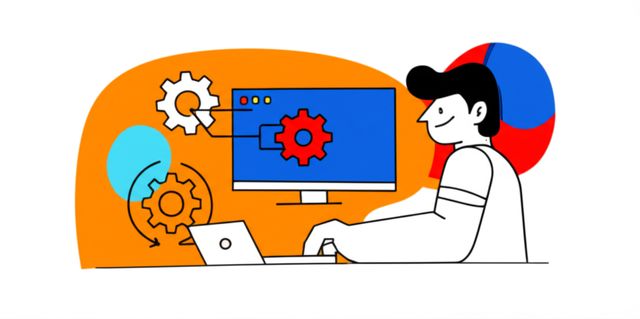Game Engine Programmer
Game Engine Programmer is a multifaceted role that requires an innovative and analytical mindset. It involves designing, developing, and implementing software for game engines, which are the frameworks that power video games. Game Engine Programmers are responsible for creating the core systems that govern how games function and interact, from physics to graphics to AI.
Career Path
Individuals seeking a career as a Game Engine Programmer typically hold a bachelor's degree in computer science, software engineering, or a related field. During their studies, they may focus on courses that cover game development, computer graphics, artificial intelligence, and physics.
Skills and Experience
To excel in this role, Game Engine Programmers should possess strong programming skills, particularly in C++ and C#. They should also be proficient in mathematics, particularly linear algebra and calculus. Additionally, a deep understanding of game engine architecture, graphics programming, and physics simulation is essential. Experience with game development tools and frameworks is highly advantageous.
Game Engine Programmers typically work in collaborative teams, so communication and interpersonal skills are equally important. They must be able to effectively convey technical concepts and work closely with other programmers, artists, and designers.
Day-to-Day Responsibilities
The day-to-day responsibilities of a Game Engine Programmer vary depending on the specific project and company, but generally involve:
- Developing and implementing game engine features
- Optimizing game engine performance
- Collaborating with other team members to ensure seamless game integration
- Testing and debugging game engine code
- Keeping up-to-date with the latest game engine technologies
Challenges
One of the unique challenges of this career is the rapidly evolving nature of game engine technology. Game Engine Programmers must constantly adapt to new developments and industry trends to stay competitive.
Projects
Game Engine Programmers may work on a variety of projects, including:
- Developing new game engine features
- Optimizing existing game engine code
- Porting game engines to different platforms
- Creating custom game engine tools and frameworks
Personal Growth
Game Engine Programmers can experience significant personal growth in this career. They have the opportunity to develop their technical skills, problem-solving abilities, and creativity.
Self-Guided Projects
Individuals interested in pursuing a career as a Game Engine Programmer can undertake several self-guided projects to enhance their skills. These projects could involve:
- Developing a simple game engine from scratch
- Creating a custom game engine tool or framework
- Porting an existing game engine to a different platform
Online Courses
Online courses can provide a valuable foundation for aspiring Game Engine Programmers. These courses typically cover the fundamentals of game engine development, including programming, graphics, and physics. They offer a flexible and accessible learning path, allowing individuals to study at their own pace and on their own time.
Through lecture videos, projects, assignments, quizzes, exams, discussions, and interactive labs, online courses help learners develop the skills and knowledge necessary for a successful career as a Game Engine Programmer.
Conclusion
While online courses alone may not be sufficient to land a job as a Game Engine Programmer, they can significantly enhance an individual's chances of success by providing a solid foundation in the essential concepts and skills. By supplementing online learning with hands-on projects and experience, aspiring Game Engine Programmers can equip themselves with the expertise needed to thrive in this rewarding and challenging field.


